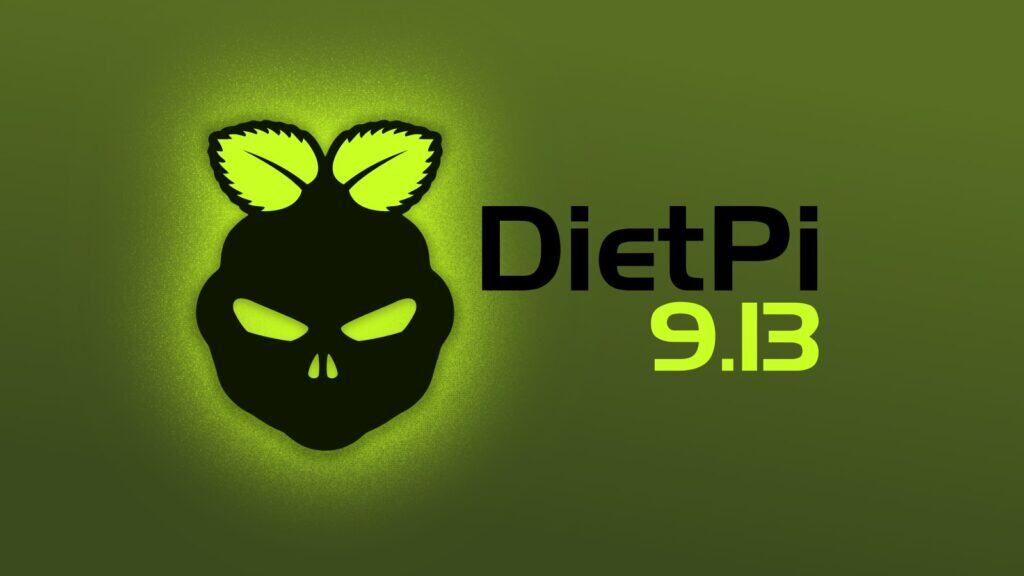Over a month after the 9.12 release, DietPi, a lightweight Debian-based Linux distribution for SBCs (such as Raspberry Pi) and server systems with the option to install desktop environments, has just unveiled its latest iteration, version 9.13.
The biggest change concerns security; this release requires a mandatory change of default passwords for all users and software installs. Moreover, updates to SBC kernels and bootloaders bring stability and functionality improvements, ensuring that popular platforms—from Orange Pi to ASUS’s Tinker Board series—benefit from up-to-date vendor kernels and mainline enhancements.
Additionally, DietPi 9.13 removes support for the Google AIY Voice Kit and Mycroft AI packages. The Google AIY repositories were archived years ago, and installation methods have long since been deprecated. Likewise, Mycroft AI, which ceased operations over a year ago, has also been dropped.
Looking ahead, the team is exploring replacements such as OpenVoiceOS and Neon AI for voice assistant functionality.
Another major change relates to the DietPi images, which no longer ship with unzip, 7zip, and bzip2 by default; these utilities will be fetched automatically when required. For the Orange Pi 3B, mainline kernel builds now support PWM fan connectors; upgrading to the 6.1-based vendor kernel brings HDMI audio support.
Meanwhile, the ASUS Tinker Board 2 sees its Ethernet MAC stability restored in the 6.12-based kernel. In virtual environments, future VM images will shift from tiny-initramfs to initramfs-tools, resolving boot issues on platforms like Proxmox and improving compatibility with Clonezilla installers.
On DietPi’s tooling side, the first-run keyboard layout dialogue has been simplified to a single, consolidated menu yet retains an “Advanced” option for users needing fine-grained control. Additionally, Gitea support has expanded to RISC-V systems.
Version 9.13 also delivers an array of bug fixes. For instance, Ethernet issues on older Orange Pi 3B v1.1 boards and RAM-detection errors on the Orange Pi Zero 3/2W have been corrected, preventing crashes on 1 GB RAM variants.
Moreover, DietPi-Set_CPU now reliably preserves custom frequency settings, and the DietPi-Imager correctly identifies and resizes the last partition on Debian Bullseye hosts, averting oversized output images. Plus, DietPi-Display’s display-management quirks have been addressed, ensuring disabled screens can be re-enabled and configuration arguments parsed without duplication.
Lastly, compatibility with Debian Bookworm and beyond has been restored for RPi.GPIO installs, Home Assistant upgrades now honor Python requirements, Redis installs automatically enable memory overcommit, and a long-standing visual glitch in the “Browse software” menu has been eliminated by replacing multi-byte box-drawing characters with simpler dashes.
Refer to the release announcement for a detailed overview of all changes. Downloads are available here.
